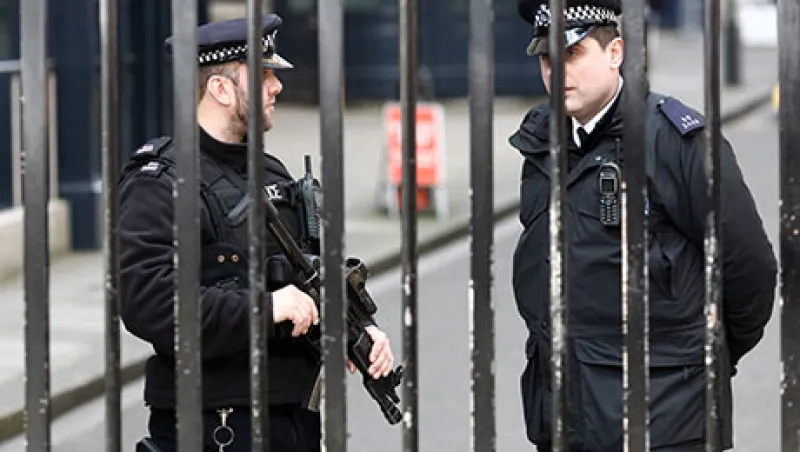Geopolitical risk was brought into sharp focus for investors by terror attacks in Brussels this morning. An assault on a subway station and two explosions at Brussels’ airport have claimed more than 20 lives and injured score more, according to initial reports from Belgian officials. The benchmark Stoxx Europe 600 equity index sold off sharply with light volume on the open while German Bunds rose in a flight to safety. With ongoing concerns about a possible exit from the European Union already weighing on the pound, British sterling fell against primary currencies in the immediate wake of the attack on speculation that it would strengthen the Brexit movement. Ironically, the Belgian attacks and ensuing selloff come on the same day that the ZEW Center for European Economic Research announced that the headline German investor-sentiment index had rebounded to 4.3 after skidding to a 16-month low in February. Meanwhile, in the U.S. Republican presidential candidate Donald Trump took to social media citing the attacks in Europe as an example of the threat posed by open borders.
U.K. Inflation unchanged. February inflation data released on Tuesday by the British Office for National Statistics registered at a weaker pace of expansion than economists anticipated, with headline consumer index levels, unchanged for the month, rising by 0.3 percent year-over-year. Headline producer prices for the U.K. contracted compared to the same month in 2015. The readings indicate that the Bank of England’s inflation target remains elusive, providing policymakers more room to maneuver as rates remain at historic lows.
Atlantic City teeters on brink. In an emailed statement on Monday, Atlantic City Mayor Don Guardian announced that city employees will not be paid between April 8 and early May as the financially troubled municipality awaits tax revenues. Guardian called on New Jersey lawmakers to prepare a bailout for the oceanside resort, which has featured legal casino gambling since the late 1970s. Credit analysts at ratings agencies covering the city have warned of a possible default as city officials consider seeking Chapter 9 bankruptcy protection.
European PMI presents mixed signals. Markit composite purchasing-manager index levels released today for the Eurozone indicate modest gains in activity but the persistence of deflationary pressures. The aggregated manufacturing and service-sector headline index registered a three-month high of 53.7, significantly higher than consensus forecasts. Manufacturing sector-specific data for Germany, the largest economy in the common currency zone, was particularly disappointing at 50.4, the weakest reading in 16 months, while the composite reading for France rebounded to positive territory at 51.1 versus a prior 49.3.
Petrobras reports massive losses. On Monday Petróleo Brasileiro, Brazil’s state-controlled oil giant better known at Petrobras, reported the worst quarterly loss since going public in 2010 in what was then the largest initial public offering in history. After writing down the value of assets, the company reported a net loss of more than $10 billion for the final quarter of 2015, down 48 percent from the same quarter in 2014, and significantly worse than consensus analysts’ estimates. The losses will prevent dividend payments for the second consecutive year, depriving the government of badly needed funds as the Brazilian economy suffers through recession. The announcement comes as Petrobras remains the focus of a growing scandal involving dozens of lawmakers and business leaders that threatens to topple the administration of President Dilma Rousseff.
Zuma scrutiny increased. On Tuesday, the South African government announced an official investigation into the business relationship between President Jacob Zuma and a powerful South African family. The news follows an internal examination by officials in Zuma’s African National Congress Party initiated over the weekend. Zuma faces accusations that he used political influence to aid the powerful Gupta family, which controls significant parts of South Africa’s energy and technology sectors and has business interests with Zuma’s son.





